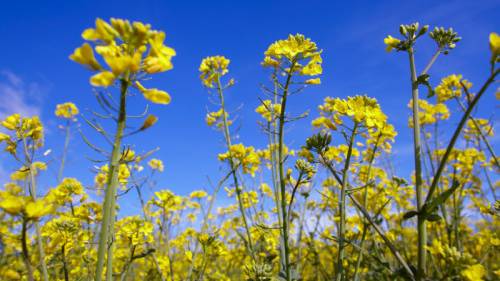Industry Insights: BASF’s Livio Tedeschi on Promoting the Good in Agriculture
AgriBusiness Global sat down with Livio Tedeschi, President, BASF Agricultural Solutions. He sees a much more prominent role of digitalization and use of data on the farm, as well as how the value chain can promote the good in agriculture.
AGB: Are you optimistic that by 2030 productivity will maintain the current level or even expand?
LT: Actually, I’m very optimistic and in 2030, we will see quite a lot of change in agriculture. So our smart sprayer-based technology is already reality now, and we are increasing the number of collaborations to have it on the market from the next days. So from now to 10 years in the future, I see a big adoption in the area. I see a much more prominent role of digitalization in the support of multiple activities on farm. Not only application of crop protection but supports for seeding choice or seed, fertilization, but recording and tracking of all farm operation. So I see data, use of data, and taking decisions based on data becoming much more prominent in the future. And when it comes to use of chemical crop protection or biological crop protection, I see the need to really look at whatever tools are available to farmers and use them whenever needed. Because in the end it is all about yield and preserving yield, and making sure we lower our CO2 footprint, and we maintain a high level of biodiversity. So sometimes you’ve got specific diseases, which have got a natural treatment with a biological product and a system which takes into account the best of the tools available in the market, is what is going to make agriculture successful in the future.
AGB: What do you see as the most exciting developments in agriculture today?
LT: I’ve been working in agriculture for 19 years now and I used to be a scientist and now, I’m managing business, but most of my life I’ve been a scientist developing a new innovations and active ingredients. But I think I see that the level of transformation we are seeing in the market now is absolutely unprecedented. So, the biggest challenge, and the most appealing challenge is being able to shape agriculture of the future in a way that has never been like it is today. And when I see that farmers have a need to not only maintain fertility, produce high yields, but also diminish their CO2 emissions, it is not something you can do with a single product. You need to have a holistic approach to your farm and start from what kind of seed technology, fertilization, what data you use and really break all barriers of linking yourself to one technology only. And, unleashes a world where collaborations across companies and technologies will result in providing a holistic service to farmers, and this is extremely exciting from the business point of view, because it allows you to combine high innovation and high quality of innovation with a lot of partners in the market and be the one who is shaping what agriculture will look like in the future. So this couldn’t be a more exciting time to work in agriculture and I really hope that in the end, we will return with a strong image of farmers and appreciation for the service they bring, and also a big quantum leap in making agriculture more sustainable and and more compatible with CO2 requirements and the way it impacts on climate change.
AGB: How would you like BASF, growers, and the value chain to promote the good work agriculture is doing?
LT: I want to go back to a discussion I had with some growers recently. I was very struck by one who told me, you know, farmers used to be heroes, because we’re responsible for making food secure and available and affordable. And then sometimes, we are treated like enemies nowadays because of farming practices. I think I see this as one of the biggest challenge of agriculture, to return dignity to the farming profession, and don’t overlook that sense of responsibility which farmers have, because in the end a lot of farms are passed on to next generations, and have been passed on for years and centuries. So the main interest is to keep the soil fertile for years and years. To run a farming operation in, full respects, with the environment and ensuring a really durable activity over the years. And in order to do this, you can only do it in the most respectful way using products only when needed and avoid any any practices which are going to give short-term results, but turn into a long-term damage. No farmer would ever do that. I think one bottleneck we are running into with farms and farmers is really to promote safe use of, for example chemical products. And a lot of the events which have created, sometimes an opinion in society, are related to incorrect use of products, off-label uses, or use of counterfeit products. So we put an enormous efforts in training, in running training programs so that the label can be properly applied. And in the end, a regulatory authority approves products for safe use. So, if you use according to the direction and label, there’s no harm arising for the crops, for the environment, and for the consumers. This is a topic which is a little bit missing in agriculture. We are engaging enormously as an industry, as a company, and together with farmers to maintain very, very high standard of use.






